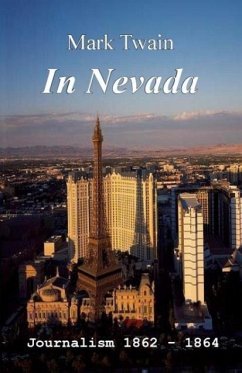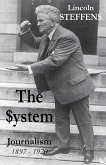After joining a ragtag militia of small-town acquaintances at the outbreak of the Civil War, Samuel Clemens soon discovered he had little aptitude for military life. He left the ranks in haste; in the same fateful spring of 1861, his brother Orion had been appointed secretary of the new western territory of Nevada. With arrest for his desertion looming, and no other promising vocation at hand, Clemens climbed aboard the westbound stagecoach with Orion at St. Joseph, Missouri on July 26. The brothers endured 21 long days on the trails heading over the Great Plains and the Rocky Mountains, to the Great Salt Lake and the Great Basin deserts, before finally arriving in Carson City, Nevada Territory. Drawn by the promise of silver riches from the nearby Comstock mine, Clemens soon found buying claims and digging for ore to be an uncertain proposition. In the meantime, he amused himself by writing short contributions to the local newspaper, the Virginia City Territorial Enterprise. Although the writing profession had never struck Clemens as a particularly worthy career, Enterprise business manager William Barstow was so taken with Clemens' work that he offered a permanent, salaried position as a local reporter, at $25 a week. Facing a serious lack of funds, Clemens negotiated, and then accepted After a discouraging first day, in which he tramped all over Virginia City and found nothing to write about, Clemens discovered that news eventually came without much prompting through his network of barroom friends and street-corner acquaintances. He wrote up tragic saloon shoot-outs, elegant hotel balls, deadly Indian fights, mining scams, the monotonous proceedings of the territorial legislature, and strange finds in the western desert, including the petrified corpse of a forlorn prospector: the author's first public hoax. Adopting the pen name of Mark Twain, his writing found a ready audience far beyond the borders of Nevada, eventually developing a national audience for his trademark keen observation, comic sensibility and sardonic, common-sense outlook. In Nevada: Journalism 1862-1964, the latest historical journalism collection from The Archive, includes hundreds of Mark Twain's most intriguing short articles from the Territorial Enterprise and other papers, complete and unabridged. Through these pieces, readers will enjoy street-level western history through the eyes of a renowned and timeless American author.
Hinweis: Dieser Artikel kann nur an eine deutsche Lieferadresse ausgeliefert werden.
Hinweis: Dieser Artikel kann nur an eine deutsche Lieferadresse ausgeliefert werden.








